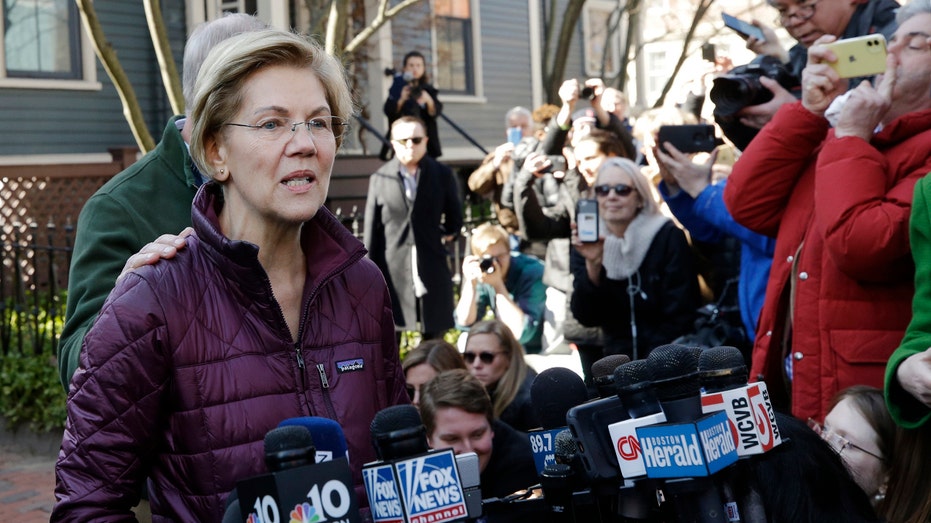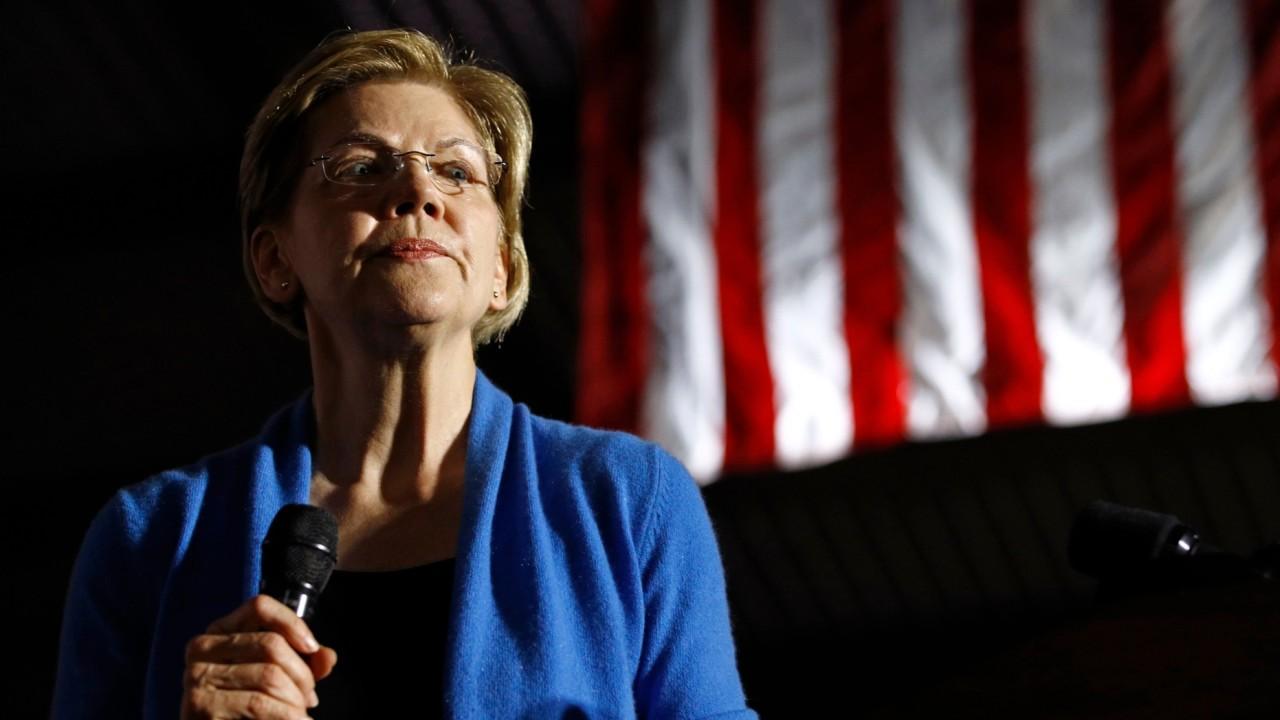Elizabeth Warren reclaims Patagonia jacket from Wall Street
Warren gave Patagonia an endorsement despite it being the unofficial uniform of Wall Street and Silicon Valley
Elizabeth Warren is bringing the Patagonia jacket back to its humble roots.
The Massachusetts senator announced her departure from the 2020 presidential race Thursday while wearing a magenta quilted Patagonia jacket in an emotional press conference outside of her home in Cambridge.

Sen. Elizabeth Warren, D-Mass., announced her departure from the 2020 presidential race on Thursday outside her home in Cambridge, Mass.(AP Photo/Steven Senne)
Warren, whose campaign aimed to break up big tech companies, is the stark opposite of many who wear the brand's vests to work every day. The Ventura, California-based company has become the unofficial uniform for financiers, bankers and big tech executives like Amazon's Jeff Bezos, a demographic Warren targeted in her proposed wealth tax. And brand experts say that Warren's politics are more in line with what the Certified B Corporation seems to stand for.
ELIZABETH WARREN WANTS AMAZON, FACEBOOK, OTHER BIG TECH FIRMS BROKEN UP
"The brand was hijacked and does not represent Wall Street whatsoever. Warren has taken it back to where it's always been," marketing strategist Chuck Welch, who has worked with companies like Pepsi and Nike, told FOX Business. "She's sending signals to her audience by wearing that brand that she's in line with its values."
Patagonia declined to comment.
Last year, Patagonia said it would no longer market its clothing to financial firms through its corporate sales program after companies like Morgan Stanley, Goldman Sachs and JP Morgan paid to slap their company logos on its fleeces and outerwear. The vests became so ubiquitous among the fin-tech bro crowd, a parody Instagram account called @MidtownUniform started creating memes of fictional "Brads" and "Chads" sporting the vests around town. The power vests with bank logos on them started selling for $200 on eBay last year after Patagonia said it would vet its corporate sales program more carefully.
"They've been trying to dissociate themselves from that image," Welch said. "They purposely went away from the Wall Street model because they're a B Corporation that gives them leeway to practice what they preach. They're not tied to quarterly earnings or growth at all costs -- they can think about profits and purpose blending into one thing."
Like Warren, who fought for affordable childcare for all and reproductive rights, Patagonia has long championed work-life balance for its employees and their families. The retailer has had a teacher-run child care program on-site at the company’s headquarters for parents for more than three decades so parents can visit their kids while at work. The workplace policy seems to have paid off – 100 percent of women who have had kids while working at Patagonia between 2011 and 2016 have returned to work, higher than the 79 percent average in the U.S. Women comprise 50 percent of managers and another 50 percent of senior leaders at the company, Quartz reported.
So it's no surprise the senator opted to wear a clothing designer that aligns with her values. Warren has long supported designers that give back to the causes she stands for. Some of her signature bright-colored jackets are made by designer Nina McLemore – who has dressed the likes of Hillary Clinton and Billie Jean King – whose company supports nonprofits that help women, children and education.
Patagonia's latest mission-driven cause is a nonpartisan plan to make voting easier in the 2020 election. The company united more than 400 companies across the country including big names like Gap Inc., PayPal and Walmart to make it easy for employees to take time off to vote so they don't have to pick between voting and getting a paycheck.
THE 2020 CANDIDATE THAT WALL STREET WANTS TO WIN
“There’s an adage, ‘the world is run by those who show up,’” the company’s chief executive officer Rose Marcario said in a statement. “Only about 60 percent of Americans vote, despite billions of dollars spent trying to get people to the polls. … No workers should have to choose between earning a paycheck and voting, and it is on all of us as responsible business leaders to contribute to the culture shift needed to increase voter participation in our elections.”




















